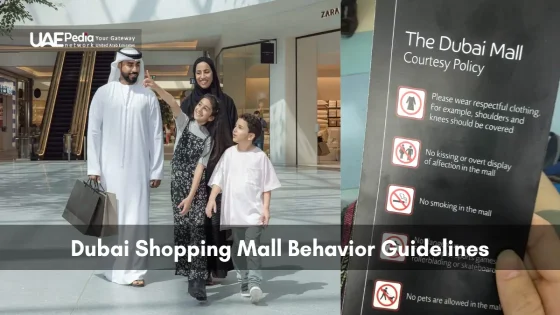What if the secret to unlocking the Emirates’ magic lies not in your itinerary, but in how you greet your guide? Between futuristic cities and golden sands, the UAE thrives on a beautiful tension—ultramodern ambition rooted in Bedouin traditions. Getting this balance right transforms ordinary trips into meaningful exchanges.
Whether you’re planning dune-bashing adventures or sunset camel rides, small gestures carry weight here. A warm “Assalam Alaikum” (Peace be upon you) when meeting locals does more than translate—it bridges worlds. Time moves differently too; mornings bring cool breezes for exploration, while afternoons invite slower rhythms under relentless sun.
This isn’t about rigid rules. It’s about traveling with eyes wide open to why Emiratis treasure hospitality, why modest clothing shows consideration, and how listening to stories over cardamom coffee creates connections. We’ll walk through practical ways to honor traditions while soaking up every thrill.
- Why blending curiosity with cultural awareness leads to richer interactions
- How pacing your day like a local enhances comfort and enjoyment
- Simple phrases and gestures that build trust quickly
- Upcoming tips for balancing adventure with respect at every turn
UAE Desert Safaris and Their Cultural Context
Imagine a place where high-tech meets ancient hospitality under the vast Arabian sky. The UAE’s golden landscapes aren’t just thrill zones—they’re living classrooms where Bedouin wisdom whispers through every dune.
Embracing the Heritage of Bedouin Traditions
For centuries, Bedouin tribes thrived here by reading stars and sharing stories around fires. Today, their legacy lives in small gestures: offering dates to guests, using “Marhaba” (Hello) as a warm opener, or pouring coffee with the right hand first. These customs aren’t relics—they’re threads connecting past to present.
| Bedouin Tradition | Modern Adaptation | Cultural Significance |
|---|---|---|
| Camel caravans | Luxury 4×4 vehicles | Navigating vast landscapes |
| Handwoven tents | Climate-controlled camps | Hospitality remains key |
| Oral storytelling | Digital guides & apps | Preserving history |
Recognizing the Blend of Modern and Traditional Customs
You’ll find Wi-Fi in campsites and vegan menus beside lamb machboos (spiced rice). Locals appreciate when visitors try basic Arabic phrases—it shows respect for their roots. Even adrenaline-packed activities like quad biking follow unspoken rules: guides often pause rides at sunset, honoring the Bedouin habit of evening reflection.
This cultural cocktail works because Emiratis value progress without erasing identity. As one elder told us: “Our traditions are like sand—they shift shape but never disappear.”
Read More:
Desert Safari Etiquette Cultural Sensitivity
Think of respect as your compass in the Emirates’ golden terrain. Harsh conditions and deep-rooted hospitality coexist here—every action ripples through interactions with guides and hosts.
Why Every Gesture Carries Weight
Bedouin culture thrives on mutual care. One guide shared: “When we offer tea, it’s not just a drink—it’s a bond.” Refusing politely (say “Shukran” with a hand on your heart) works better than abrupt declines. Harsh winds and shifting dunes remind locals that survival depends on teamwork—your awareness keeps that spirit alive.
| Do’s | Don’ts | Why It Matters |
|---|---|---|
| Greet guides warmly | Ignore local dress codes | Builds trust quickly |
| Ask about traditions | Feed wildlife | Protects ecosystems |
| Accept drinks graciously | Disrupt quiet moments | Honors shared spaces |
Simple Actions, Lasting Impressions
Here’s your cheat sheet for smooth adventures:
- Speak clearly—short phrases like “Mumtaz!” (Excellent!) show engagement
- Remove shoes before entering tents, mimicking how locals keep sand outside
- Photograph landscapes freely, but always ask before snapping portraits
A traveler once told us how sharing dates with a Bedouin family led to an impromptu astronomy lesson. Small acts? Maybe. Unforgettable memories? Absolutely.
“Dive Deeper: Dubai Mosque Visiting Rules for Tourists“
Communicating Respectfully with Local Bedouins
Ever noticed how a simple “hello” can unlock doors? In the UAE, your first words and gestures set the tone for meaningful exchanges. Let’s explore how to start conversations that spark smiles rather than confusion.
Greeting Etiquette and Basic Arabic Phrases
Bedouin hospitality begins with warm welcomes. Wait for locals to extend their hand first—this small pause shows awareness of personal space. If they offer a handshake, respond with a gentle grip (no firm pumps!).
| Arabic Phrase | Meaning | When to Use |
|---|---|---|
| Marhaba | Hello | First meetings |
| Shukran | Thank you | After receiving help |
| Kayfa halak? | How are you? | Casual check-ins |
One guide explained: “When visitors try our language, it’s like sunshine after a sandstorm—it brightens everything.” Pair these phrases with a hand-over-heart gesture to amplify sincerity.
Best Practices for Friendly Interactions
Blend English and Arabic smoothly:
- Start with “Marhaba! Lovely to meet you”
- Ask “What’s this called in Arabic?” to spark dialogue
- End with “Ma’a salama” (Goodbye) and a nod
Remember: clear communication isn’t about perfect grammar. It’s about showing effort. Locals appreciate when you embrace the Dubai Dubai vibe—modern energy rooted in timeless warmth.
How to Dress Modestly for a Desert Adventure
Picture this: your outfit becomes your passport to deeper connections under the Arabian sun. In the UAE, what you wear does more than block UV rays—it shows awareness of traditions shaped by centuries of desert life.
Smart Packing for Heat and Hospitality
Pack light layers that balance sun protection with airflow. Women: loose linen shirts over breathable leggings work better than tank tops. Men: knee-length shorts or lightweight trousers beat ripped jeans. Pro tip: Scarves double as head coverings during mosque visits or sudden sandstorms.
| Urban Areas | Dubai Desert Excursions | Why It Works |
|---|---|---|
| Maxi dresses | Moisture-wicking shirts | Respects modesty codes |
| Closed-toe shoes | Sturdy sandals | Adapts to terrain |
| Light cardigans | UPF-rated wraps | Blocks intense sun |
The Why Behind the What
Covering shoulders and knees isn’t just about rules—it’s a nod to Emirati values of discretion. As designer Ahmed Al Hashimi notes: “Our attire reflects how we honor guests and environment alike.” Modern synthetics now let you follow local codes without sacrificing comfort.
Choose clothes in sandy neutrals to blend with the Dubai desert landscape. Bright colors? Save them for beach resorts. This simple shift helps you move smoothly from camel rides to city souks, proving respect and style coexist effortlessly.
Observing Dining and Hospitality Etiquette in the Desert
Ever wondered how a shared meal can become your gateway to Emirati culture? Breaking bread here isn’t just about sustenance—it’s a dance of respect and connection passed down through generations. Let’s unpack the unspoken rules that turn simple acts into meaningful exchanges.
Sharing Meals and Accepting Hospitality
When a host offers Arabic coffee or dates, they’re extending trust. Declining outright can feel like rejecting friendship. A traveler once told us: “Saying ‘yes’ to bitter gahwa (coffee) led to hours swapping stories under the stars.” Locals appreciate when visitors embrace local food without comparisons to home flavors.
| Tradition | Modern Practice | Purpose |
|---|---|---|
| Offering dates to guests | Serving dates with artisanal chocolate | Symbolizes generosity |
| Pouring coffee with right hand | Using right hand for passing items | Shows attentiveness |
| Eating from communal platters | Buffet-style camp dinners | Encourages bonding |
Dining Customs and Right-Hand Etiquette
Why the right-hand rule? In Bedouin traditions, the left historically handled hygiene tasks. Today, using your right for eating or handing items signals cultural awareness. Guides notice—one shared: “Visitors who follow this make locals light up.”
Quick tips for smooth meals:
- Sample every dish—even small portions show appreciation
- Keep phones tucked away during shared meals
- Compliment flavors with “Lazeez!” (Delicious!)
These gestures might seem minor, but they’re the secret sauce to transforming tourist moments into genuine connections. After all, isn’t that why we travel?
Navigating Off-Roading and Environmental Respect
What separates a thrilling ride from an ecological misstep in the UAE’s golden sands? The answer lies in tread marks—where you leave them matters more than you think. Our wheels carve stories into the landscape, and choosing responsible paths keeps those tales positive.
Staying on Designated Trails
National parks thrive when visitors stick to marked routes. A ranger once told us: “Veering off-path crushes dormant seeds that take decades to bloom.” Delicate root systems beneath the surface can’t handle rogue tires. Follow these guidelines to balance adrenaline with care:
| Vehicle | Best Practice | Impact |
|---|---|---|
| Quad bike | Maintain steady speed | Reduces sand displacement |
| Dune buggy Dubai | Avoid sharp turns | Protects compacted trails |
| Buggy Dubai | Follow guide’s lead | Preserves wildlife corridors |
Why risk it? Straying damages habitats for lizards, foxes, and rare plants. Tire tracks also confuse desert safari animals, altering feeding patterns. Guides share that groups practicing overlanding etiquette often spot more wildlife—nature rewards mindful travelers.
Quick tips for eco-conscious adventurers:
- Check tire pressure—lowered tires distribute weight better on dunes
- Photograph tracks, not plants—uprooting flora is illegal in protected parks
- Schedule rides during cooler hours—animals retreat from midday heat
Your ride isn’t just about horsepower—it’s about legacy. As one tour operator put it: “We want our grandkids to feel this same rush, with dunes as wild as today.” Drive like the future’s watching.
“Further Reading: UAE Hand Gestures to Avoid Offensive“
Interacting with Local Communities and Embracing Social Norms
What’s the fastest way to spot a respectful traveler in Dubai? It’s not their camera gear or itinerary—it’s how they mirror the rhythm of daily life here. From bustling markets to quiet neighborhoods, every interaction becomes a chance to build bridges.
Understanding Local Customs in Daily Life
Dubai thrives on warm but reserved interactions. A shopkeeper at Dubai Marina once told us: “When visitors ask about our favorite Emirati dishes instead of snapping photos, we share recipes!” This balance of curiosity and discretion opens doors.
| Social Norm | Visitor Approach | Impact |
|---|---|---|
| Modest clothing | Lightweight, knee-length attire | Shows awareness of local code |
| Reserved body language | Avoid loud gestures in public | Aligns with community standards |
| Indirect communication | Use phrases like “Perhaps” or “Maybe” | Prevents misunderstandings |
At Buggy Dubai rental hubs, guides notice when travelers adjust their behavior. Lowering voices during safety briefings or asking permission before petting camels earns nods of approval. These micro-gestures matter more than grand speeches.
Quick tips for authentic interactions:
- Smile warmly but avoid prolonged eye contact
- Skip politics—discuss architecture or food instead
- Learn three Arabic phrases beyond “Hello” and “Thank you”
Remember: Dubai’s traditions blend modernity with heritage. Dressing thoughtfully for a quad bike tour or pausing conversations during prayer calls shows you’re tuning into this unique rhythm. As one resident put it: “Respect isn’t a checklist—it’s constant awareness.”
Practical Tips to Enhance Your Safari Adventure
What transforms a checklist into cherished memories? Preparation that blends savvy planning with cultural curiosity. Let’s map your path to an unforgettable journey through golden landscapes.
Preparation and Cultural Awareness Strategies
Start with these steps to sync your plans with local rhythms:
- Pack smart: Lightweight scarves, closed-toe shoes, and reusable water bottles work for dunes and dinners
- Learn three phrases: “Kayfa halak?” (How are you?) builds rapport faster than Google Translate
- Study the stars: Bedouin navigation tales add depth to sunset views
| Essentials | Cultural Add-Ons | Why It Wins |
|---|---|---|
| Sunglasses | Arabic phrasebook | Shows initiative |
| Sunscreen | Neutral-toned clothes | Blends comfort and respect |
| Power bank | Local charity donations | Supports communities |
Incorporating Respectful Behaviors into Your Journey
Respect isn’t a rulebook—it’s rhythm. A tour leader in Abu Dhabi shares:
“Visitors who ask about our morning coffee rituals often get invited to private family gatherings.”
Try these subtle shifts:
- Pause before snapping photos—a smile and nod often lead to better shots
- Let guides set the pace; their stops reveal hidden wildlife and stories
- Share snacks discreetly; public displays can feel performative
Your adventure thrives when awareness meets spontaneity. After all, the best stories start with “Remember when we…” not “I wish we’d…”
Check out the below:
A Respectful Farewell to Your Desert Journey
Your footsteps in the dunes fade quickly, but the impressions you leave endure. We’ve walked through how simple choices—covering shoulders, asking before snapping photos, sharing tea with a smile—turn fleeting moments into lasting bonds. These gestures honor traditions shaped by generations of life in golden landscapes.
Every handshake and shared meal builds bridges. Whether navigating Dubai’s sands or Abu Dhabi’s trails, your awareness of local codes transforms tours into exchanges. Guides notice when you follow off-road rules or greet them in Arabic—it’s how strangers become temporary allies under the sun.
Take these insights beyond the UAE:
- Dress for both comfort and modesty
- Let curiosity guide conversations, not assumptions
- Treat every landscape like a borrowed treasure
As you pack your bags, remember: respect isn’t a souvenir. It’s a lens that sharpens every adventure. Safe travels, friends—may your next journey be as rich in stories as the stars above our campsites.
Opt for loose, breathable clothing that covers shoulders and knees—think lightweight long sleeves and pants. Avoid tight or revealing outfits to align with local modesty norms. Sunglasses, closed-toe shoes, and a scarf for sun protection are smart adds!
A warm "As-salamu alaykum" (peace be upon you) with a smile works wonders! Handshakes are common, but wait for locals to initiate. Men should avoid offering handshakes to women unless they extend first. A slight head nod shows courtesy if unsure.
Always ask permission first—even candid shots can feel intrusive. Some Bedouin hosts may decline, especially women. Respect their privacy, and focus on landscapes or group shots where everyone’s comfortable. It’s about trust, not just the ‘gram.
In Emirati culture, the left hand is traditionally considered unclean. When sharing mezze or dates, pass dishes and eat with your right hand. If you’re left-handed, a quick “Ana asif” (I’m sorry) with a smile eases any accidental slips!
Stick to marked trails—veering off damages fragile ecosystems. Reputable operators like Arabian Adventures or Platinum Heritage use eco-friendly routes. Avoid littering, and never remove plants or wildlife. Leave only footprints (and epic memories).
Accept Arabic coffee (gahwa) or tea with your right hand—it’s rude to refuse. A small sip shows appreciation. If offered dates or sweets, take a portion politely. Say “Shukran” (thank you) to acknowledge their generosity. It’s about connection, not just consumption.
Research basics like prayer times (avoid loud activities then) and Ramadan etiquette. Learn phrases like “Mabrook” (congratulations) or “Insha’Allah” (God willing). Pack a reusable water bottle—sustainability aligns with Emirati values. Small efforts = big respect!

















